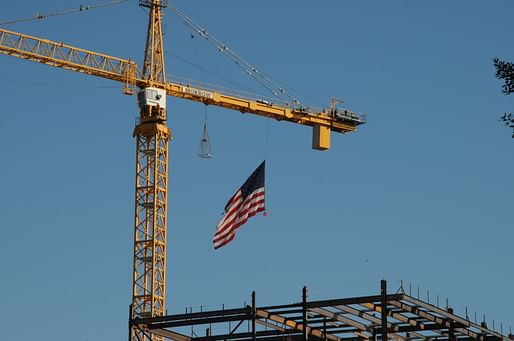

As society necessarily repositions itself in order to limit the spread of the novel coronavirus (COVID-19), economic analysts are forecasting that the American economy has already entered into a near-term recession.
Researchers at the University of California, Los Angeles Anderson School of Management issued a revised economic forecast today stating that the US economy has already stopped growing and will "remain in recession through the end of September," The Los Angeles Times reports.
The report indicates that economic activity will fall by 0.4% for the first quarter, which ends March 31st. Further, the report estimates that economic activity will contract by 6.5% in the second quarter and by an additional 1.9% in the third. If the pandemic is handled sometime this summer, the analysts predict, the economy could see 4% growth in the fourth quarter of 2020.
The report comes on the heels of a revised economic analysis from banking giant Goldman Sachs that also anticipates a recession, Business Insider reports. The bank reversed its quarterly gross domestic product estimates to indicate a 5% contraction between the first and second quarters. Until recently, the bank had predicted modest growth of 3% in the US economy over the course of the whole year. The bank now estimates that following the slow down that is currently taking shape, the economy will rebound with 3% growth in the third quarter and potentially, a 4% expansion in the fourth quarter as a recovery sets in.
The National Bureau of Economic Research, the entity that officially declares a recession, recently redefined the conditions surrounding such a downtown. In the past, economic contraction lasting two consecutive quarters was considered a recession; Now, a recession is defined as declining economic performance for a period "lasting more than a few months," a condition that is all but guaranteed by the coronavirus pandemic.
The severity and duration of the downturn is, of course, dependent upon how long it takes to control the spread of the virus, and afterward, on the nature of the role governmental and regulatory agencies play in bringing renewed health to the economy and society, overall.
The economic impacts for the architecture and construction industries are currently unclear.
For one, it is likely that construction activity will become severely restrained over the coming short term period. Traditional construction work is likely to slow down if not cease entirely temporarily across the country as those workers are sent home to limit the spread of the virus, reports indicate.
This has already been the case in the United Kingdom, where Building UK reports that work on the $1.3 billion Google headquarters complex there designed by Heatherwick Studio and Bjarke Ingels Group (BIG) has ceased in order to prioritize the safety of the 200 construction workers erecting the building after one construction employee tested positive for COVID-19.
By Wednesday, all BCYF programming will be suspended. Only select @BCYFcenters centers will be open for youth meal distribution throughout the @BostonSchools closure.
— Mayor Marty Walsh (@marty_walsh) March 16, 2020
This morning, Boston Mayor Marty Walsh announced that all construction projects in the city will halt as a result of the city's response to the coronavirus pandemic. The details of this announcement are forthcoming, but it is likely that similar efforts will be put in place in other cities.
Los Angeles, San Francisco, New York City, and Seattle, the nation's largest construction centers, are either currently undergoing or expected to enact restrictions of public gatherings and even, in the case of San Francisco, non-essential movement about the city, including construction activity.
On the other hand, a coordinated effort to fight the spread of the virus could lead to an increase in the development of hospital facilities. New York Governor Andrew Cuomo, for example, recently called on the federal government to mobilize the National Guard to work with construction unions and private developers to help build new hospitals and to retrofit existing buildings for patient care purposes, The New York Times reports.
Design work at architecture firms is expected to proceed more or less as usual through the near-term future via remote work, and recent economic maneuvers from the Federal Reserve aimed at easing the supply of money theoretically could boost construction activity after the crisis passes, though only, of course, if the pandemic is addressed swiftly and recovery is undertaken radically and effectively.
No Comments
Block this user
Are you sure you want to block this user and hide all related comments throughout the site?
Archinect
This is your first comment on Archinect. Your comment will be visible once approved.